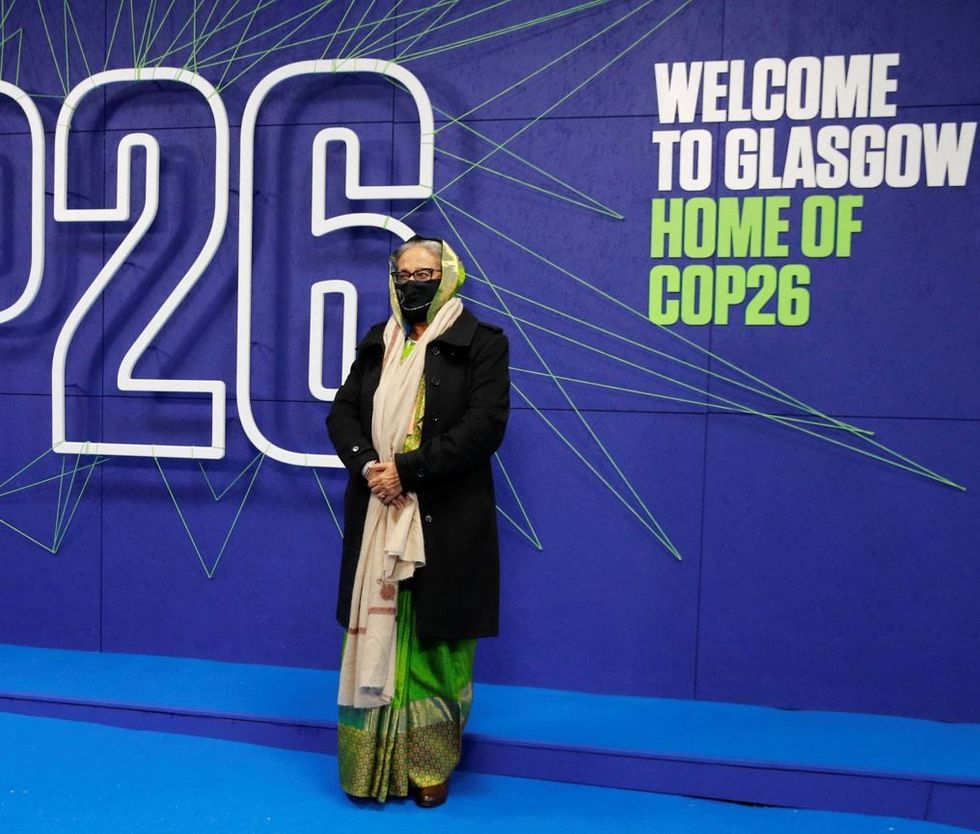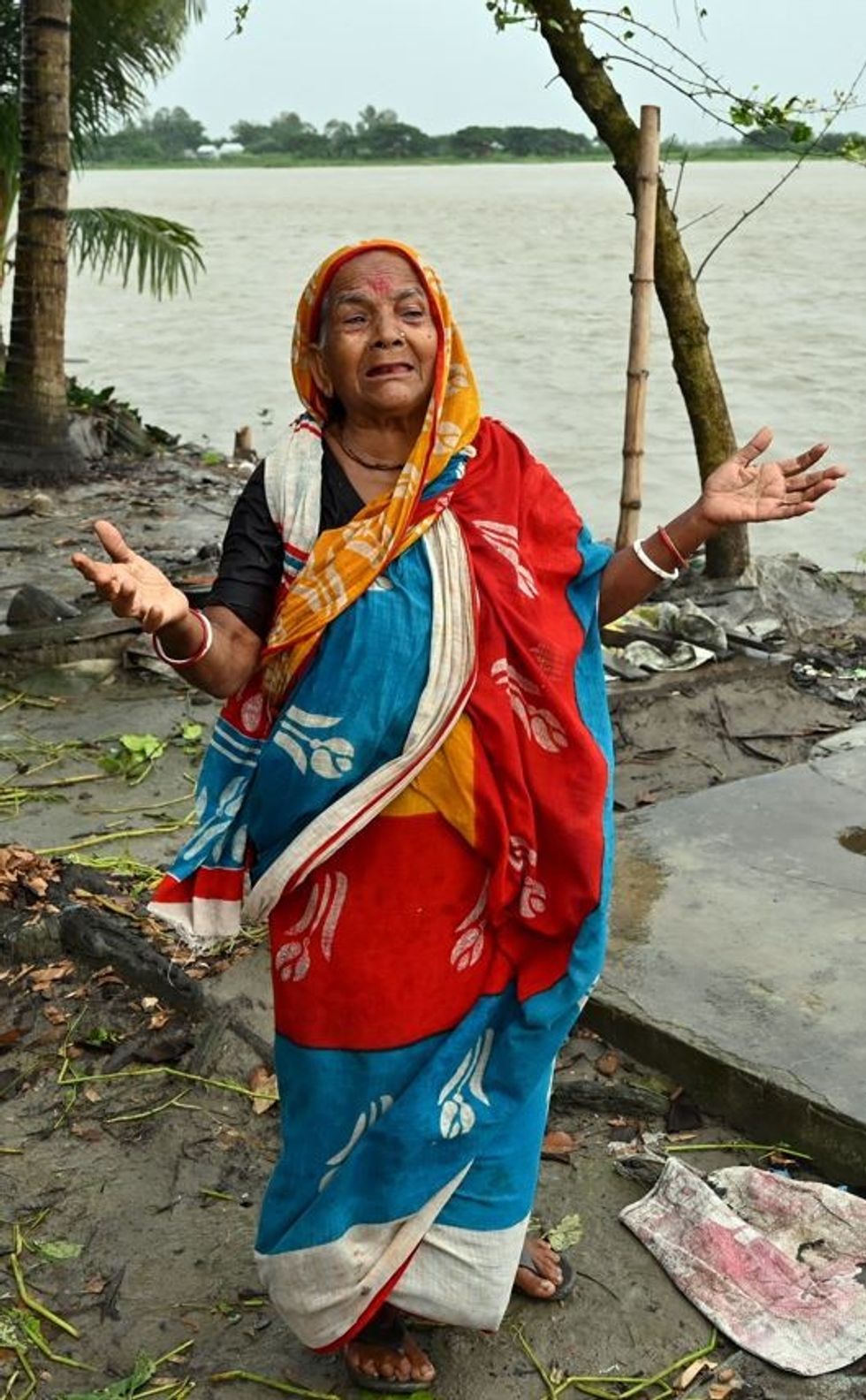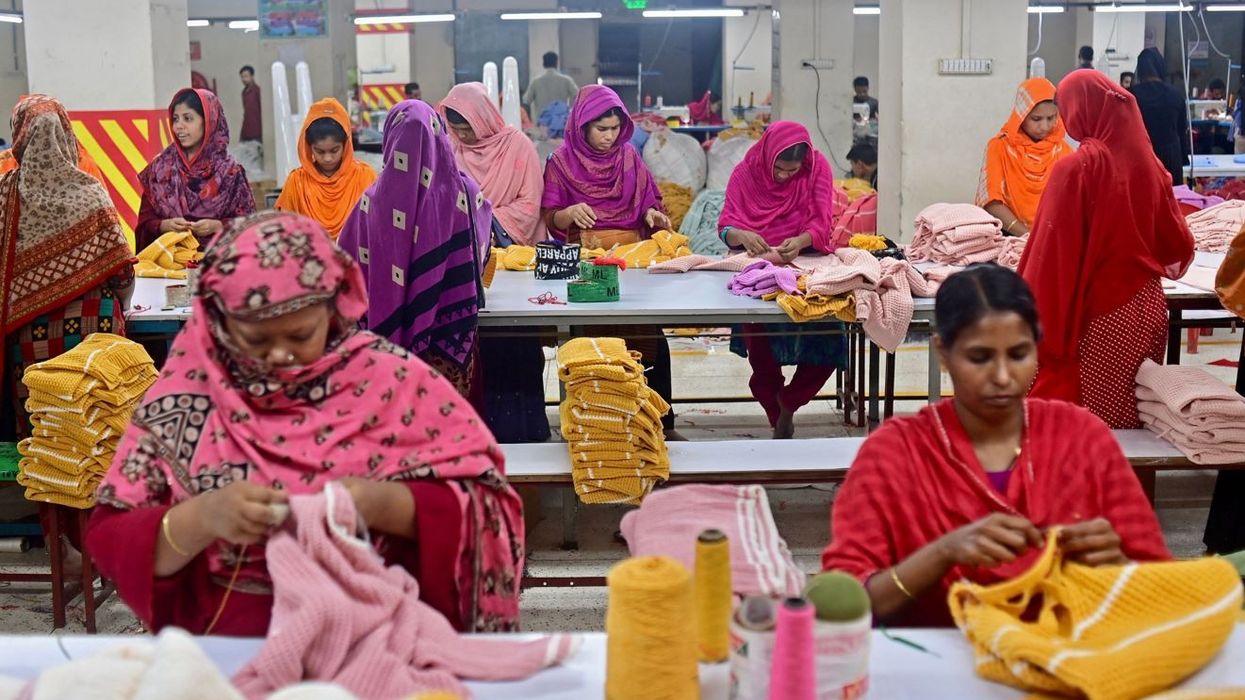GREEN finance is growing fast in Bangladesh, official data shows, with the central bank and private banks boosting efforts to encourage companies from brick-makers to textile mills to invest in technology and solutions that tackle climate change.
Considered one of the most climatevulnerable countries – due to impacts like worsening flooding, river and coastal erosion and storms – Bangladesh has been exploring a range of financial innovations, from green loans to climate-related insurance and microfinance.
The former central bank governor, Atiur Rahman, who helped to develop the nation’s sustainable and green finance policies more than a decade ago, said the ripple effect of “pioneering green banking in Bangladesh has been phenomenal” – at home and abroad.
China’s and Indonesia’s central banks have followed the example of Bangladesh on sustainable finance, while Thailand and Uganda have recently sought its advice on the issue, Rahman said.
“Other central banks are now transforming into more inclusive developmental regulators with forward-looking policies to encourage banks over green initiatives so the private sector feels reassured to go for sustainable investment,” he added.
Yet some analysts said progress in Bangladesh is hindered by limited capacity at the central bank and private banks. They are calling for greater development of green financial instruments – such as green bonds – in order to help the market go mainstream.

“Commercial banks sometimes misuse funds in the name of green finance due to their lack of knowledge on technical aspects of green projects,” said Monzur Hossain, research director at the Bangladesh Institute of Development Studies.
The country’s central Bangladesh Bank launched its green and sustainable finance policy in 2012 – providing loans with interest rates between two per cent and four per cent lower than standard lending, and longer repayment terms.
However, the push was not initially popular due to a lack of awareness. So the central bank changed its policy in 2020 to boost uptake, according to Chowdhury Liakat Ali, director of Bangladesh Bank’s sustainable finance department.
One of its customers is Banolata Refractory, a brick manufacturer in northern Bangladesh. Banolata received a loan of $462,000 (£362,000) – at a six per cent interest rate instead of the usual 10 per cent – to build a Hybrid Hoffman Kiln (HHK), which uses less coal than traditional ovens, resulting in less pollution and planet-heating emissions, the business said. “Now, (the company) is a leading brick-maker providing the majority of bricks ... in the northern part (of Bangladesh),” said Shahidul Islam, a factory operations manager at Banolata in the country’s northern Natore district.
“HHKs use only half as much coal as fixed chimney kilns ... we are reducing up to 70 per cent carbon,” Islam added.
The central bank has made it mandatory for financial institutions to disburse at least 15 per cent of their loan budgets to sustainable projects, and five per cent or more to green initiatives.
Sustainable finance, according to Bangladesh Bank, covers investments geared towards environmental, social, and governance (ESG) targets and the UN Sustainable Development Goals (SDGs), while green finance is focused solely on the environment.

At least $12 billion (£9.3bn) of sustainable finance and more than $1.1bn (£860 million) in green finance was invested by banks and financial institutions last year. These are increases of 58 per cent and 69 per cent respectively from 2021, data from Bangladesh Bank shows.
There are now more than 117 such financing products on offer in Bangladesh– up from 68 last year – including for solar home systems and solar parks, biogas and wind power plants, waste management and recycling, and organic farming, for example.
Syed Mahbubur Rahman, managing director of Mutual Trust Bank, a private bank, said green and sustainable borrowers were “very conscious” and tended to repay their instalments on time. “As bankers, we feel proud when we see our loans used for environment-friendly and sustainable projects,” Rahman said.
In addition to banks, insurance brokers and microfinance institutions are also playing a role – offering small loans and insurance for agriculture, for example – while the SAJIDA Foundation last year issued the nation’s first green bond. The nonprofit raised 1.1 billion taka ($10.3m/ £8m) from private-sector organisations, using it to provide micro-loans to farmers and poor families in the 36 districts where it works.
Garment manufacturers have led the way among the Bangladeshi companies taking advantage of green and sustainable loans. More than 185 garment factories have received LEED certification, an international standard for green buildings – the highest number among the world’s garment-exporting countries – said the BGMEA, Bangladesh’s trade organisation for the sector.
One such company, Envoy Textile, in 2021 took a loan of $1.84m (£1.44m) from a non-banking financial institution at an interest rate of 5.5 per cent to replace its traditional machinery with eco-friendly technology. Automatic cutting and sewing machines, inverter air conditioners and LED light bulbs have helped the firm reduce its carbon emissions, said managing director Abdus Salam Murshedy.
“Another big achievement is that the buyers are taking more products as we are using environment-friendly equipment,” he said. “They are signing longterm contracts with us.”
Bangladesh Bank has also started giving awards for the best performers on sustainable finance. Every bank now has a dedicated green or sustainable department, according to Ali.
“We are now thinking about a sustainable climate change policy,” he said, explaining that it would factor in climate adaption and mitigation efforts, as well as loss and damage.
“We believe Bangladesh could be a pioneer at green and sustainable finance,” Ali added. “One day we might stop financing projects that are harmful for the environment.” (Thomson Reuters Foundation)




